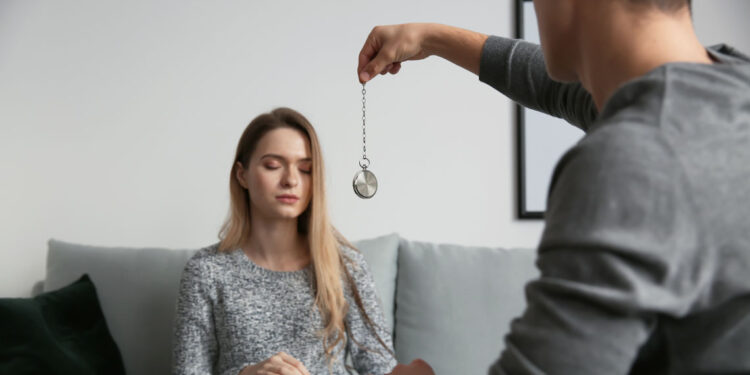
Have you ever puzzled what makes somebody weak to hypnosis? A research revealed within the International Journal of Clinical and Experimental Hypnosis means that being self-conscious could make particular person’s much less prone to being hypnotized.
Hypnotism is regularly regarded as a gimmick achieved by magicians, however it may also be a utilized as a psychological intervention. Theories about how hypnosis features point out that there’s a lower in self-awareness and/or consideration that’s mandatory for that affect. There could also be a side of hypnosis requiring much less competitors with different points of cognitive functioning.
Hypnotizability has been discovered to be linked to many particular person traits, however there was restricted analysis exploring how totally different points of self-consciousness relate to hypnotizability. This research seeks to bridge that hole in literature.
Etzel Cardena and colleagues utilized 328 undergraduate college students from two northern California universities. The pattern contained 54% feminine contributors with a imply age of 20.35 years previous and ages starting from 16 to 57 years previous. Participants accomplished measures on hypnotic susceptibility, experiences throughout a hypnotic process, and self-consciousness.
The self-consciousness measure included three subscales: personal self-consciousness (e.g., “always trying to figure myself,” “know the way my mind works”), public self-consciousness (e.g., “self-conscious about the way I look,” “aware of my appearance”), and social nervousness (e.g., “get embarrassed,” “large groups make me nervous”).
Results confirmed that the discontinuity with on a regular basis experiences throughout hypnosis was correlated with each private and non-private self-consciousness, suggesting that being self-conscious about different individuals’s views was associated to decreased likeliness of being prone to hypnosis. Women had been proven to be extra prone to hypnotism and scored larger on the emotions of automaticity subscale.
As age elevated, self-consciousness decreased, which is a relationship that must be studied extra in relation to susceptibility to hypnosis in future analysis. Additionally, social nervousness was not discovered to have a big relationship with hypnotizability, although the correlations had been detrimental, as hypothesized.
Despite the progress this analysis made in information about hypnosis, this research had some limitations to notice. One such limitation is that the correlations confirmed small impact sizes. Additionally, using solely an undergraduate pattern from California limits generalizability. Future analysis may make the most of a extra various participant pool.
“Besides taking into consideration these limitations, future studies should consider making more focused analyses looking at the potential relations between self-consciousness, gender, trait dissociation, and hypnotic experiential automaticity, discontinuity, and absorption,” the researchers concluded. “Only the latter has received much research attention. In addition, aspects of self-consciousness could be manipulated experimentally to evaluate any impact on hypnotic responsiveness. In sum, there are multiple reasons to continue investigating how different aspects of self-consciousness may relate to hypnotic experience and hypnotizability.”
The research, “Dispositional Self-Consciousness and Hypnotizability“, was authored by Etzel Cardeña, Lena Lindström, Ann Åström, and Philip G. Zimbardo.













Discussion about this post